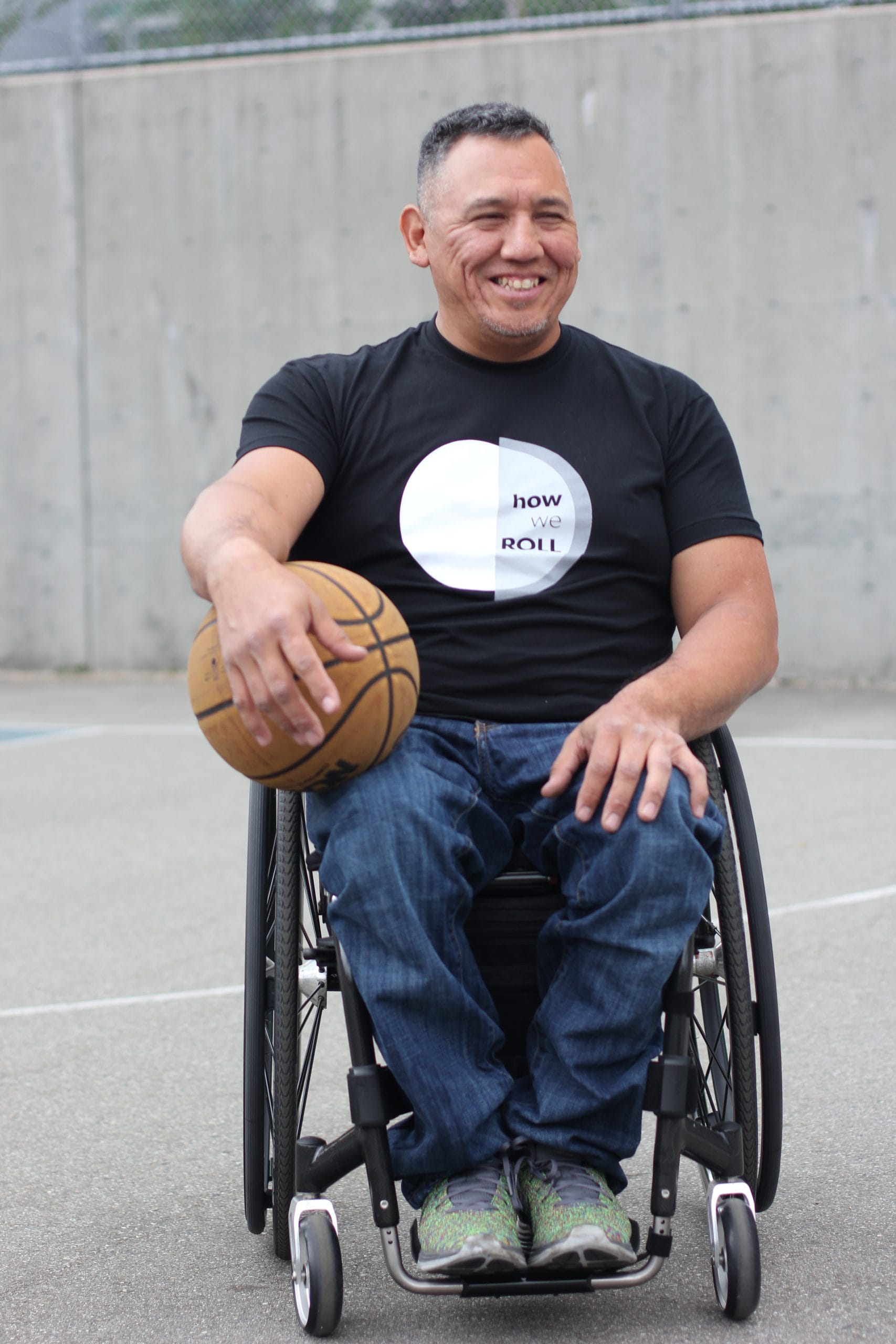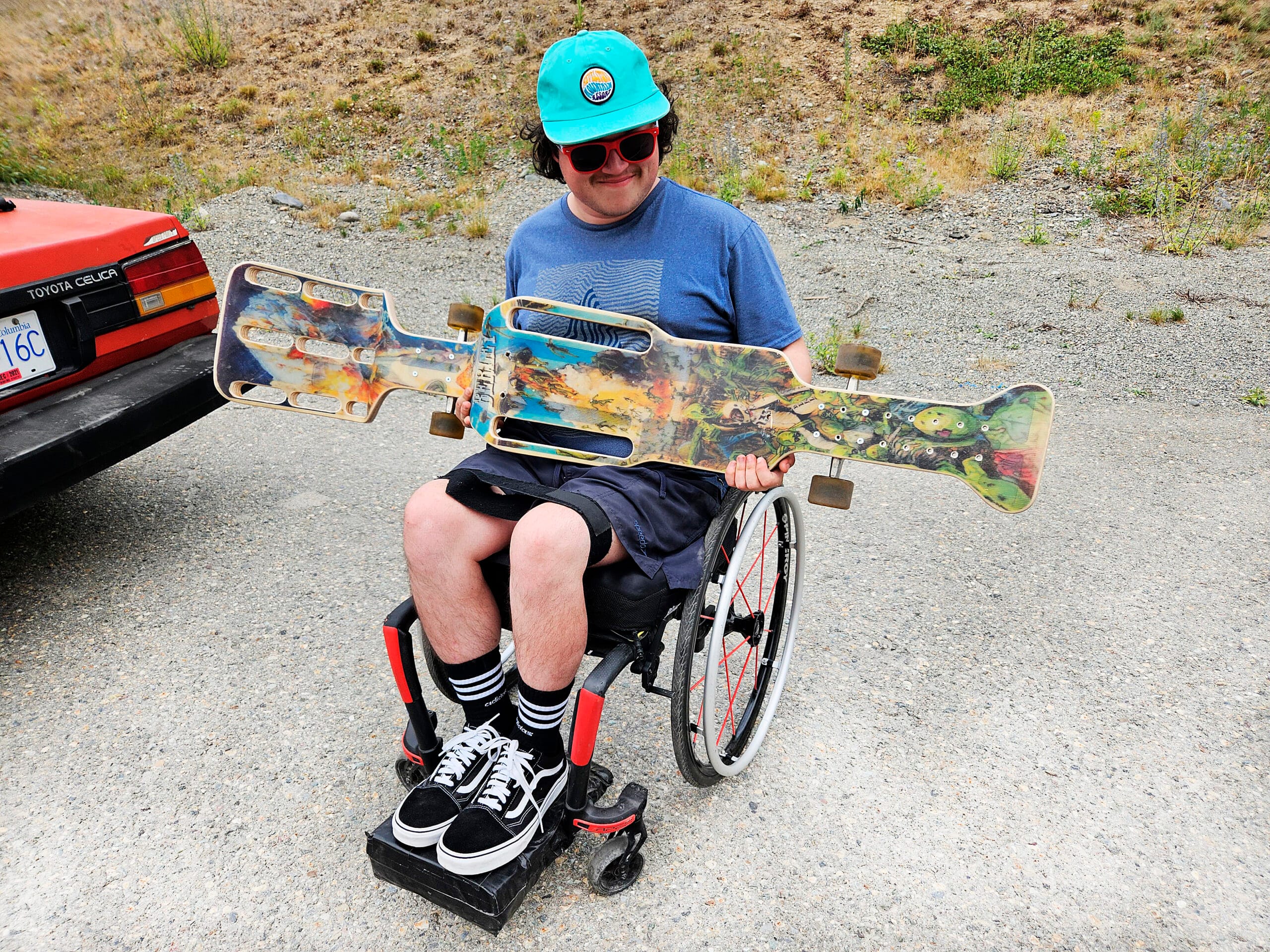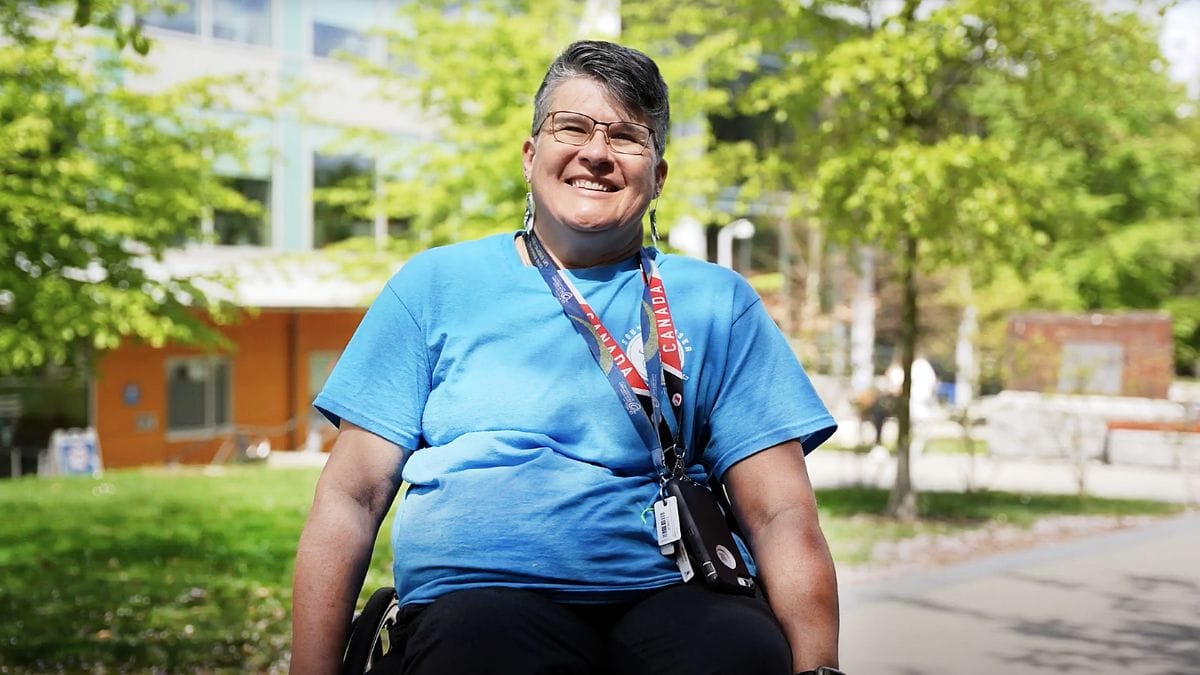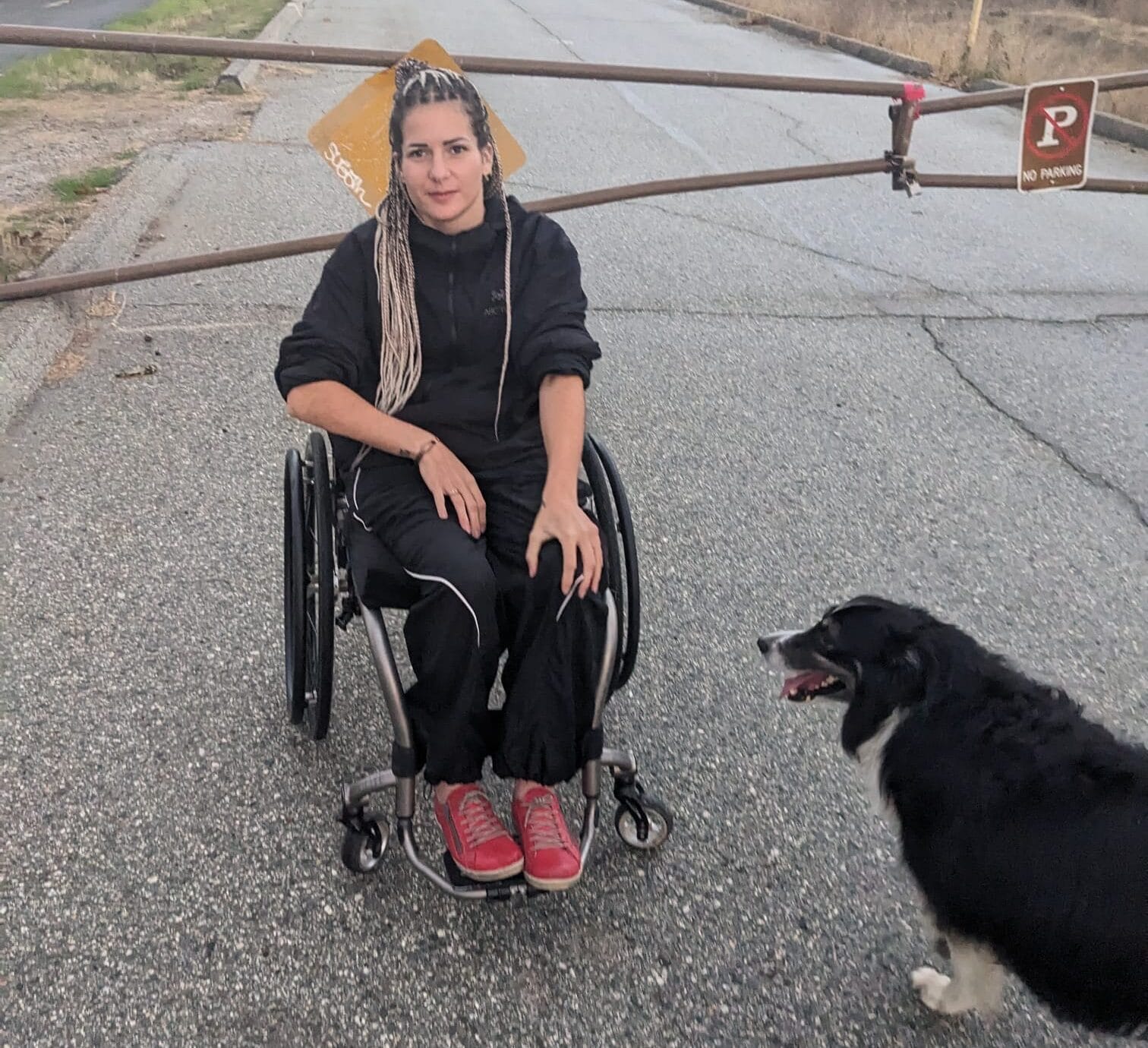
“I’m never a one trick pony,” says Richard Peter. As an Indigenous leader, five-time Paralympian, mentor, sports advocate, research champion, husband, son—and so much more—this is an understatement.
Injured in a bus accident when he was four years old, Richard was introduced to SCI BC through Peer Program Coordinator Scott Heron. Scott, who still works for SCI BC, visited Richard and his family in Duncan. “He met with my mom and me and gave us information,” Richard says. “As a young kid I didn’t have much of a connection with him, but it’s great now. I’ve known him for over 30 years, and it’s great we still talk.”
For Richard, it’s all about this continued connection. “SCI BC opened the doors, then Wheelchair Sports did a demo at my high school and I got involved in para sports.” He tried everything—athletics, tennis, swimming, basketball—until something clicked. “I found team sports was what I enjoyed the most,” he says. “I got to meet peers involved in sport and that was a first for me… I learned a lot.”
After competing in five Paralympic games on Team Canada’s wheelchair basketball team, Richard focused on giving back. “Whether it’s part of my culture, as an Indigenous person, or just who I am, I’ve always given back to my community,” he says. “I came from a low-income background… but I was able to start out in athletics with the wheelchair loan program from Wheelchair Sports and that definitely helped. I want to give back because I know everyone was always there to help me as much as possible.”
Over the years, he’s done this in a multitude of ways. As a former Peer Program Coordinator for SCI BC at the GF Strong Rehab Centre office, Richard established relationships with newly injured people and was often the first point of contact for them and their families.

“Everyone has different levels of acceptance about their disability,” Richard says. “They may not want to get back into their favourite activities right away. It might take a couple of months or even years.” He adds, “Sometimes you get people who come through GF Strong once and you make that initial connection, but you can lose it over time,” Richard explains. That’s the value of having so many organizations with longevity. Knowing that the BC SCI Network (a group of five disability organizations that includes Spinal Cord Injury BC, Disability Foundation, Neil Squire Society, BC Wheelchair Sports Association and BC Wheelchair Basketball) is there to support people whenever they’re ready is extremely important.
Now, as an ambassador for the BC Wheelchair Sports Association’s Indigenous Bridging the Gap program, Richard helps shape the direction of programming for Indigenous youth with SCI. “When I got hurt it was very difficult and coming from a small town to the big city of Vancouver was pretty scary,” says Richard. “Sometimes I’ll go chat with somebody from a First Nations community and say, ‘hey, I know it’s big and scary, but it can be done.’ Hopefully, they always have someone to talk to and I can be available for them.”
According to our community partners, The British Columbia Aboriginal Network on Disability Society, Indigenous peoples of Canada experience a disability rate significantly higher than that of the general population and receive less resources and support. By using the experience and wisdom gained over the years living with an SCI, Richard has helped overcome these challenges and made a tremendous impact for Indigenous individuals with a disability. “I’m always pointing people in the right direction,” he says. “Everyone is just trying to find where they fit in,” and Richard is committed to helping make this happen.



